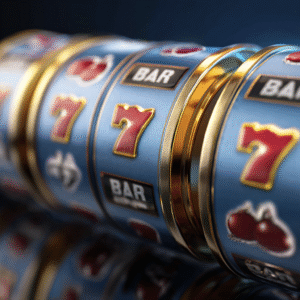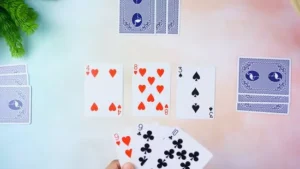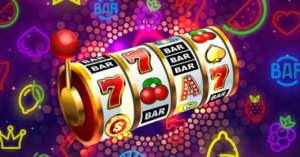
Roulette Strategy & Psychology: Mastering the Mental Game Behind the Wheel
Roulette is more than just red or black, odds or evens. While many players focus solely on the math, odds, and betting systems, the real battlefield is often psychological. The thrill of the spin, the clatter of the ball, the tension of waiting—it’s a game that taps deeply into emotion, impulse, and flawed logic. To truly play roulette well, it’s not just about knowing the wheel; it’s about knowing yourself.
One of the most common psychological traps in live roulette is cognitive dissonance. This occurs when a player holds two conflicting beliefs, such as knowing that roulette outcomes are completely random, while simultaneously believing a number is “due to hit.” This mental tug-of-war creates tension. To resolve it, many players change their betting strategy not based on logic or odds, but to relieve the discomfort in their mind. They may increase their bets, switch from outside bets to risky inside plays, or chase losses—all because their brain is trying to justify their emotional decisions with a false sense of control.
This leads directly into the classic trap of the Gambler’s Fallacy. “It’s due to hit” is a phrase you’ll hear often around a roulette table. If red has come up five times in a row, the next spin must be black, right? In reality, each spin is independent. The wheel doesn’t remember. The ball has no memory. But our brains crave patterns and meaning, even in randomness. This cognitive bias convinces players that past outcomes influence future ones, leading them to place larger bets in the wrong moments. A dangerous combination when emotions are running high.
To avoid falling into these traps, players must develop techniques to stay grounded. Slow play is a powerful tool. Taking time between spins—not rushing decisions—gives the brain time to cool off. It allows space to reflect on what’s happening, rather than acting on impulse. This technique is especially effective in live roulette where it’s easy to get caught up in the pace and energy of the room. Slowing down your play reduces the chances of making emotionally driven bets and helps maintain perspective.
Another psychological hurdle is the seductive appeal of “one more spin.” After a string of losses, or even after a big win, players often feel the urge to go again just one last time. It’s not strategy—it’s emotion. The brain wants to regain control, to break even, or to chase that euphoric high one more time. Learning to say “no” to a final spin is one of the most powerful skills a roulette player can master. It’s a self-imposed boundary that protects your bankroll and your mindset. Setting a stop-loss or a win limit before you start and sticking to it—no matter how you feel in the moment—is essential for long-term, responsible play.
Even the way players approach different types of bets reveals a lot about their psychology. Inside bets like splits, corners, and straight-up numbers often carry more emotional weight than outside bets. They represent bold moves and higher rewards, but they also trigger stronger emotional reactions—both in wins and losses. A big win on a straight-up number can create a rush that clouds judgment for the next several spins. Conversely, a long losing streak on inside bets can lead to frustration, tilting the player into irrational decisions. Recognizing your emotional response to each type of bet can help you stay in control.
Mastering the psychological side of roulette means understanding how your brain reacts to risk, reward, loss, and expectation. It means knowing when emotion is steering the wheel, not logic. The most successful players are those who build awareness of their own thinking patterns and implement simple strategies to counter them—like playing slowly, resisting the pull of “due” numbers, setting clear limits, and staying emotionally detached from each bet.
Roulette will always be a game of chance. But the way you manage your mind can turn it into a game of discipline. And in the long run, that makes all the difference.
Where to Next:

The Best Slots to Play Online | Top Games, Apps & Casinos for Big Wins & A Great Gaming Experience
The Best Slots to Play Online | Top Games, Apps & Casinos for Big Wins & A Great Gaming Experience The best slots are the ones that combine exciting gameplay, strong winning potential, smooth performance, and access through reliable casinos that actually pay out. When people search for the best slots, they are usually looking

Top Slots | The Ultimate Guide to Top Slots Online, UK & Mobile Apps
The Ultimate Guide to Top Slots Online, UK & Mobile Apps Top slots are the games that players return to again and again because they combine fun gameplay, strong win potential, and smooth performance across desktop and mobile. When people search for top slots, top slots UK, top slots casino, or top slots online, they

Learn About & How to Play Thirty-One: A Fun and Strategic Card Game you Probably Never Heard Of?
Learn About & How to Play Thirty-One: A Fun and Strategic Card Game You Probably Never Heard Of? Thirty-One, also known as “Scopone” in some regions, is a classic card game with a rich history that dates back around 500 years. It’s still enjoyed in many variations across Europe and is often compared to popular

How Do Free Spins No Deposit Bonuses Work and Where Can You Find Them?
Find Bonuses How Do Free Spins No Deposit Bonuses Work and Where Can You Find Them? If you’re looking to try your luck with a free spins no deposit bonus. The UK casino scene is full of exciting no deposit bonuses, offering players a chance to win big without needing to make any initial deposit.

Play Tight, But Aggressive: Mastering the Art of Poker Strategy
Play Tight, But Aggressive: Mastering the Art of Poker Strategy In the world of Poker, understanding the concept of playing tight, but aggressive is crucial to becoming a successful player. This strategy is often used by experienced professionals to maximize their potential winnings while minimizing their risk. So, what does it mean to “play tight,

How to Play Poker | The Ultimate Guide to Poker Basics
How to Play Poker | The Ultimate Guide to Poker Basics Poker is one of the most popular and thrilling card games globally, enjoyed in casinos, homes, and online platforms. Whether you’re a beginner or looking to sharpen your skills, learning the basics of how to play Poker is essential. In this guide, we’ll walk

What Are Live Slots and How Do They Work? Live Slot Games Explained
Play Live Slots What Are Live Slots and How Do They Work? Live Slot Games Explained Live slots and live casino games are designed to blend the convenience of online play with the atmosphere and authenticity of a real casino floor. Instead of relying entirely on automated visuals and silent gameplay, live games introduce real

What Are Crash Casino Games and How Do You Play Them?
Crash Games What Are Crash Casino Games and How Do You Play Them? Crash casino games are a popular and thrilling type of online gambling that focus on simple yet exciting gameplay. Unlike traditional slot games or table games, crash games are all about timing. Players place bets on a multiplier that increases as the game
FAQ: Roulette Strategy & Psychology
1. What is cognitive dissonance in roulette?
Cognitive dissonance is the mental discomfort players feel when their knowledge of roulette (that it’s a game of chance) conflicts with their belief that certain numbers are “due to win.” This often leads to irrational bets to reduce internal tension.
2. Why do players believe some numbers are “due to hit”?
This belief stems from the Gambler’s Fallacy, a cognitive bias that assumes past outcomes affect future ones. In roulette, each spin is independent, so no number is ever “due.”
3. What is the Gambler’s Fallacy exactly?
It’s the mistaken belief that after a streak of the same outcome (like red five times in a row), the opposite (black) is more likely. In reality, the odds reset every spin—past spins have no influence.
4. How does slow play help in roulette?
Slowing down your betting and taking breaks helps you stay in control emotionally, think clearly, and avoid impulsive decisions driven by short-term losses or wins.
5. Why is it hard to walk away after a loss or win?
Roulette triggers emotional highs and lows. After a loss, you want to recover. After a win, you want to repeat the thrill. Both states impair rational thinking, making it hard to stick to limits.
6. How can I teach myself to say “no” to a final spin?
Set a win/loss limit before you start playing and treat it like a contract. When you reach it, stop. No “final spin” exceptions—discipline is key.
7. Are inside bets riskier than outside bets?
Yes. Inside bets like straight-up numbers or splits offer higher payouts but are less likely to win. They also tend to trigger stronger emotional reactions when won or lost.
8. Why do people get emotional over split or corner bets?
These bets often feel more personal and exciting due to their higher risks and rewards. This emotional attachment can distort decision-making and cause reckless betting.
9. Is there any skill in roulette?
Roulette is primarily a game of luck. However, managing your bankroll, recognizing psychological traps, and knowing when to stop require discipline and self-awareness, which are skills in their own right.
10. Can tracking past results help me win at roulette?
No. Past results don’t affect future spins. While some players enjoy pattern tracking for fun, relying on it for betting strategy is a misconception.
11. What is bankroll management and why is it important?
Bankroll management involves setting strict limits on how much you’re willing to risk. It protects you from emotional overspending and helps extend your playing time.
12. What’s the best way to avoid emotional betting?
Play slowly, take frequent breaks, and avoid chasing losses. Try to treat each bet as part of a larger, neutral game plan—not a personal challenge to recover or win big.
13. Can psychological awareness improve my roulette experience?
Absolutely. Understanding your mental patterns, triggers, and emotional responses allows you to play more responsibly, enjoy the game more, and avoid costly mistakes.
